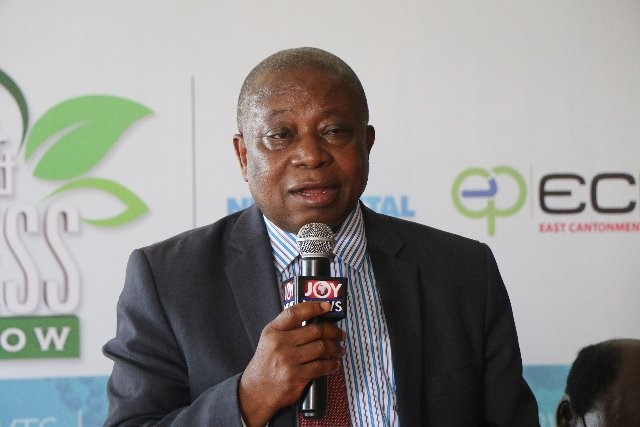The Ministry of Health has justified the collection of a fumigation fee for cement raw materials at the country’s ports of entry.
The Chamber of Cement Manufacturers (COCMAG) recently complained that the ongoing exercise of a fumigation fee being collected at the Ports is not necessary for cement raw materials, and that government should waive it since manufacturers cannot be charged for no service done.
They argued that clinker, limestone and other cement raw materials are dry cargos which most often do not exit through the port gate – and as such are not subjected to any fumigation exercise.
Reacting to the claims by COCMAG in a statement signed by the Minister of Health, Kwaku Agyemang-Manu, it said implementation of the Disinfection Health Service is based on the International Health Regulations (2005) prepared by the World Health Organisation and made into international law at the General Assembly of the United Nations in 2007.
IHR has been incorporated into Public Health Act 851 as the 7th Schedule in its entirety. The government of Ghana is simply upholding its commitment to International and Local Law to protect Ghanaians.
Disinfection is defined as the procedure whereby health measures are taken to control or kill infectious agents on the exterior of the baggage, cargo, containers, conveyances, goods and postal parcels by direct exposure to chemical or physical agents. “This procedure is implemented in the Biosecurity Zone that has been established around the Points of Entry (Border Crossings). Therefore, any vehicle that comes in or out of the Biosecurity Zone is disinfected without exception. If we allow exceptions, the project’s integrity will be compromised,” the statement read.
The facts about the case:
The Disinfection Health Service Fee is not a levy but a fee that is paid for a service being received by any beneficiary of the service. Let’s us not forget the economic devastation that both Ebola and now COVID- 19 has caused the economy. The Disinfection Health Service is trying to prevent the pathogens that attack not only Ghanaians but our economy as well. The Disinfection Health Service is also there to protect the very economy that the Chamber of Cement Manufacturers needs in order to sell their products.
Seaports are among the most infected areas in the country. All kinds of pathogens can arrive at ports from many different countries. They can be transported out of the port by the exterior of vehicles that carry cargo. It is easy to find these pathogens on the wheels of trucks or on their exteriors. So, a truck carrying clinker or any cement raw materials can get into the port, have its exterior infected and carry the pathogens out of the port – causing infectious diseases in Ghanaians or their animals.
Ghana Health Service Officials have been successfully carrying out their duty to direct these trucks to the Disinfection facilities. The port of Tema even has a designated gate called the ‘Clinker Gate’, where there are two disinfection tunnels to carry out the Disinfection Health Service.
The Disinfection Health Service Fee is being paid by all industries, and the fee itself is not at a rate that can make or break the trade. The IHR regulations have been implemented in Ghana for some time. As a reminder, these include but are not limited to the International Certification of Vaccination booklet (yellow fever), Ship Sanitation Certificates, Disinsectification of Aircraft (spraying inside), Disease Tracing, COVID-19 measures and PCR.
Therefore, we ask for full cooperation from the Chamber of Cement Manufacturers- Ghana, to support the Ministry of Health and the brave men and women of the Ghana Health Service to keep our borders bio-secure.
When contacted, the Executive Secretary of COCMAG, Rev. Dr. George Dawson-Ahmoah, disclosed that the Chamber has had discussions with the Ministry of Health and other relevant authorities on the fumigation fee – which have been back and forth for some time now, and need the appropriate redress.
The explanation by the minister is satisfactory because as patriotic citizens and professional business entities our ultimate aim is to protect and promote the economy
We cannot fight the government but rather support it to achieve its objective of national development. In this same vein, we appeal to the government to heed our various petitions to ensure fair trade practices in the industry. There are a lot of unfair practices which need to be addressed.










